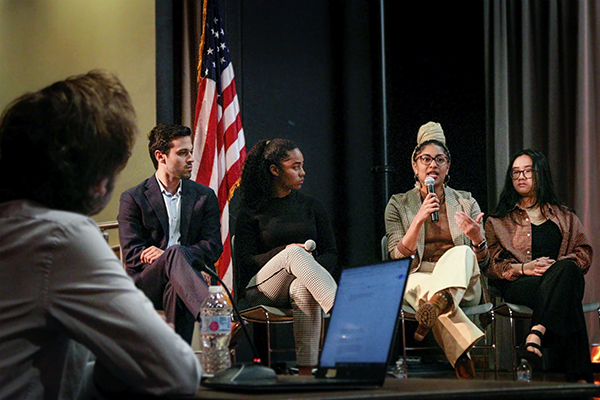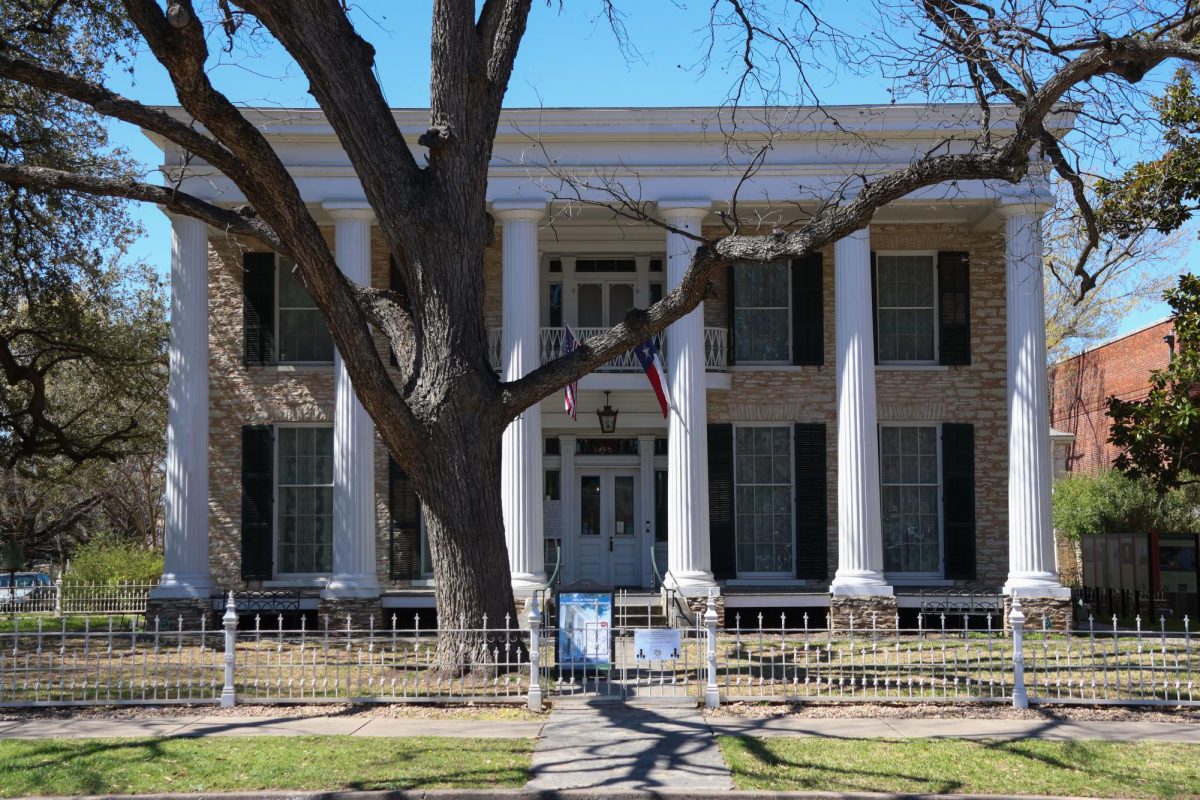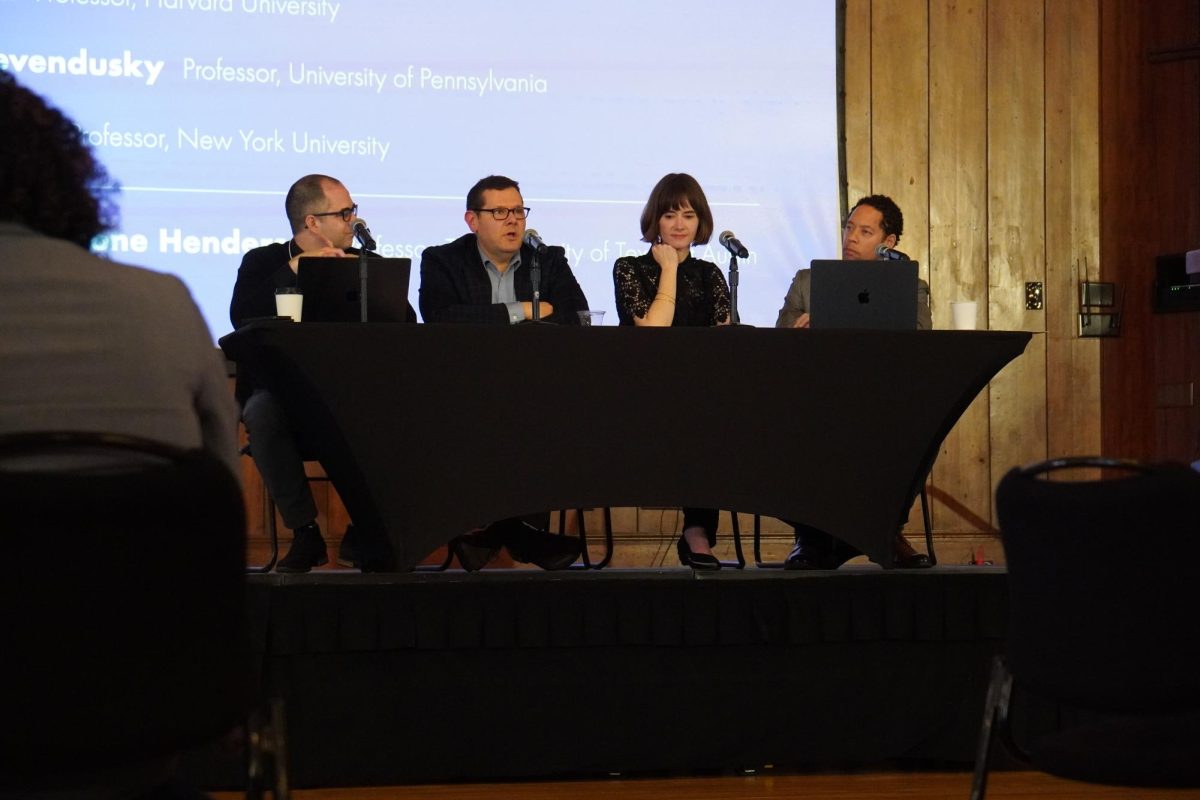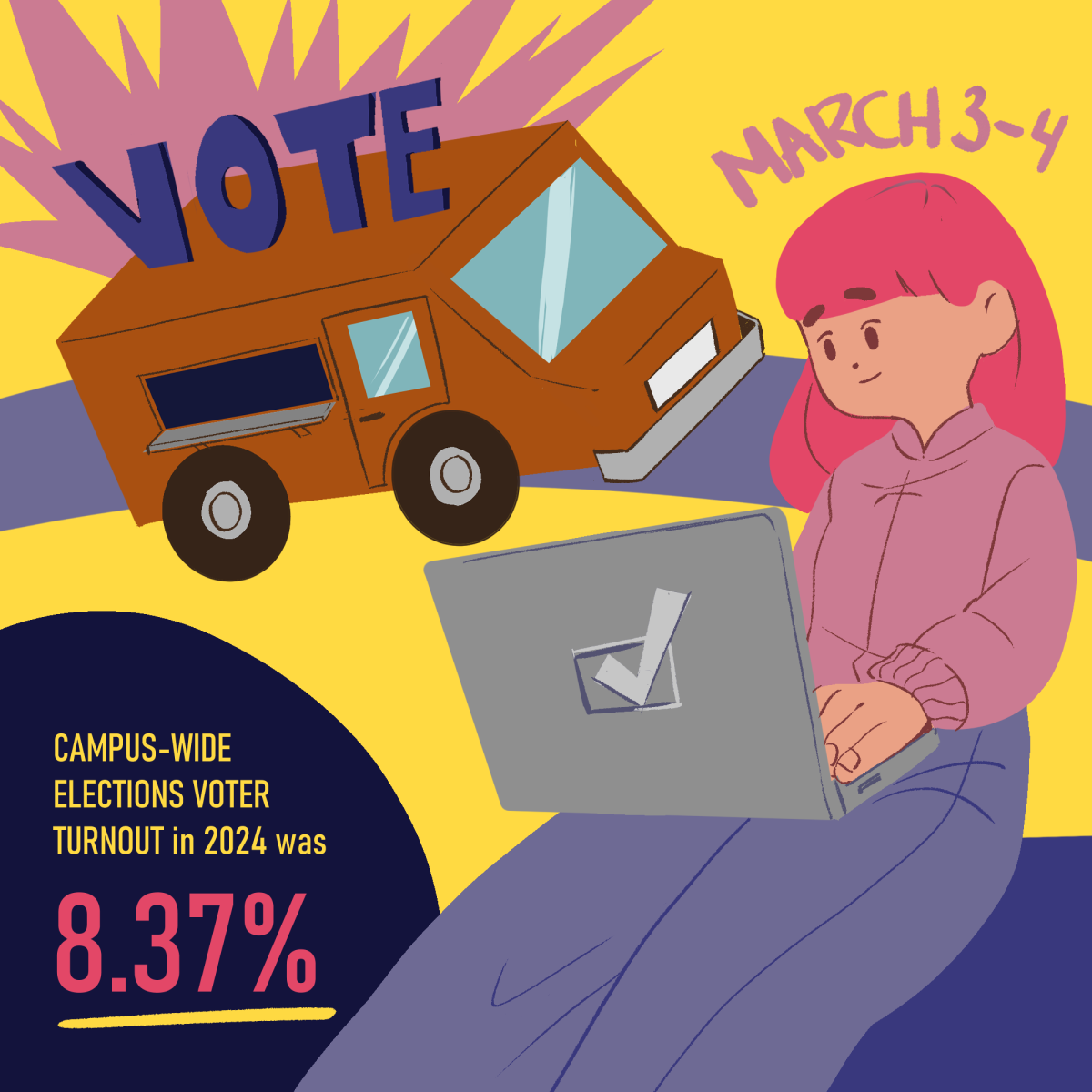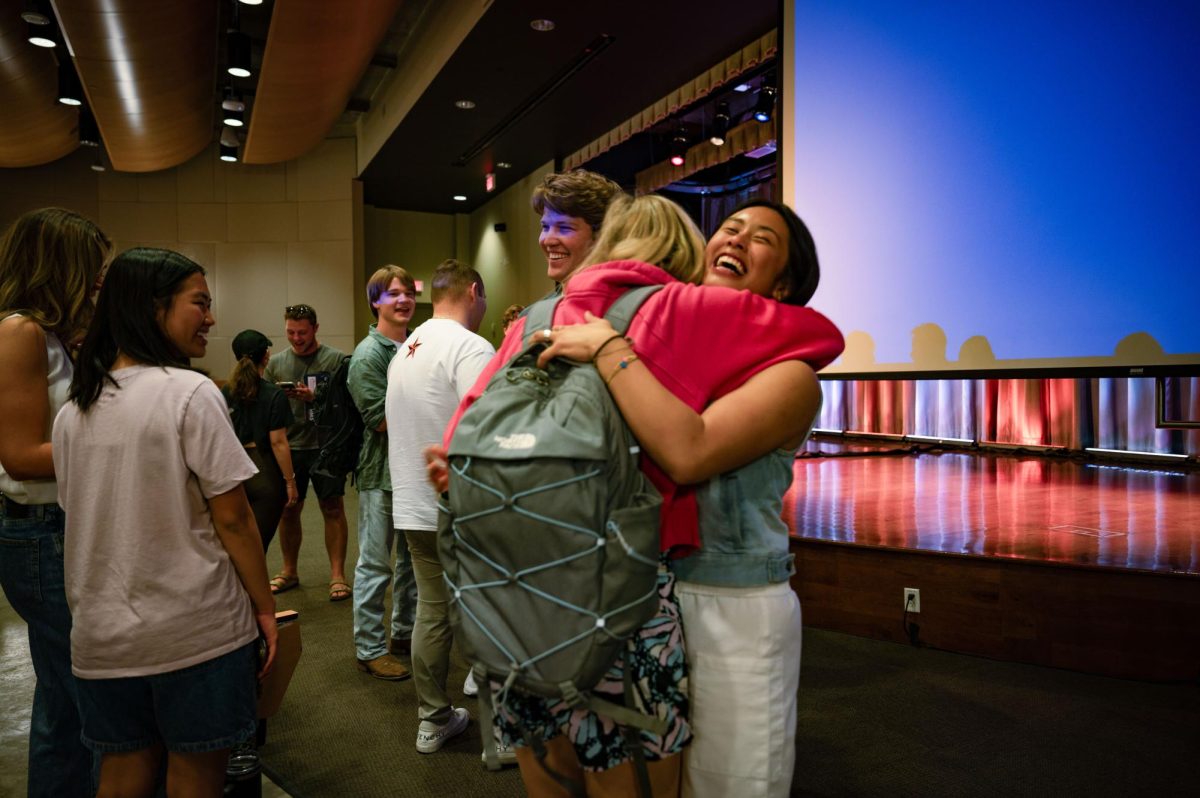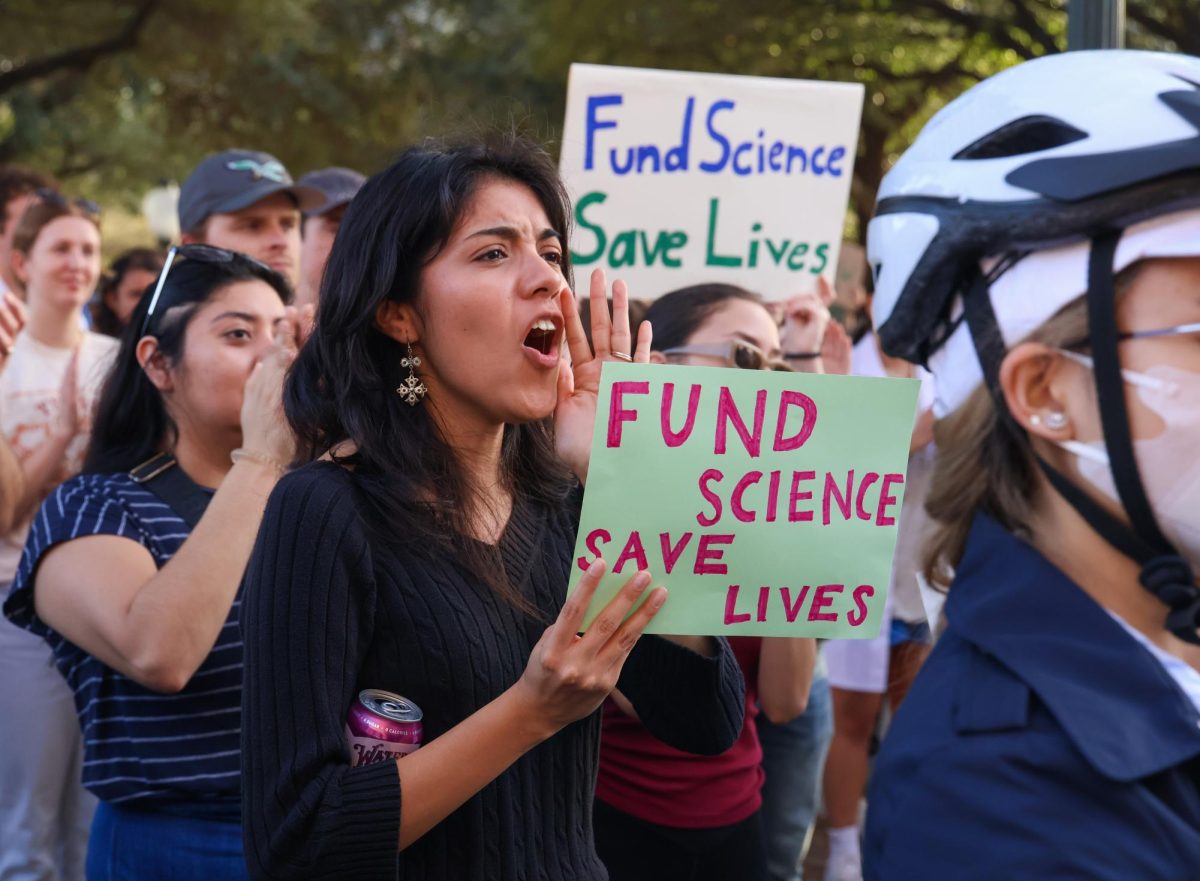Candidates for student body president and vice president proclaimed their opinions on student safety, mental health and student representation at the Student Government debate Monday evening.
Eight of the nine executive alliances gathered at an auditorium in the William C. Powers, Jr. Student Activity Center to speak about their campaign points and answer student questions. Shay Holt and Wade Ivey did not participate in the debate. Connor Alexander and Camille Johnson’s campaign was disqualified by the Election Suprvisory Board on Monday night after the debate because their campaign was issued two fines that exceeded the monetary amount of fines allowed. Alexander and Jackson will be appealing one of the fines with hopes to lift their suspension, according to an email to The Daily Texan.
Candidates began with opening statements with their opinions about the biggest concerns facing the student body. Then, the candidates answered questions about specific topics important to students.
Candidate for president Anagha Kikkeri, who is running with Winston Hung, said the biggest issue for students is inclusion and equity.
“Student Government and campaigns pick a few communities to tokenize … and leave out a majority of the student body,” government junior Kikkeri said. “We truly want to incorporate (everyone’s) voices.”
Vice president candidate Suseth Muñoz, who is running with Sean Tucker, said the biggest concern is resource accessibility. Muñoz said the University needs to consolidate resources and give them back to students.
Muñoz, a government and applied learning and development sophomore, also said that if elected, her executive alliance would appoint a diverse executive board so all student voices are heard.
Audience members asked candidates about sexual misconduct policies and the accusations against University professors last semester.
Vice president candidate Alex Jackson said the sexual misconduct cases against UT professors have not been handled in a timely manner.
“It makes it even more difficult and painful for survivors (to have professors accused of sexual misconduct at the University),” Jackson said.
Candidate for president Sean Tucker said his campaign will create a committee of students who will monitor off–campus parties for sexual assault to ensure student safety.
“Sexual violence is not just an issue on UT’s campus … students face it across all spheres of campus,” communication and leadership junior Tucker said.
Candidates also addressed concerns about access to mental health resources.
Jerri Garcia, who is running for vice president with Jalesha Bass, said most students say they have had at least one bad experience with the Counseling and Mental Health Center and that University resources should not provide negative experiences to students.
“We shouldn’t be creating financial barriers (for students),” social work junior Garcia said. “We should be opening doors.”
Jackson, who is running with Tayler De La Cruz Kennedy, said their administration would implement full-time counseling services at every dorm on campus.
Kikkeri said their campaign will increase access to CMHC virtual counseling to remove barriers for students who are unable to attend in-person counseling.
Multiple candidates said at the end of the debate that no matter the outcome of the election, they believe in the other candidates running and will continue to work for their platform points in other ways.
“We can’t advocate for everyone on this campus,” said vice president candidate Lynn Huynh, an advertising and women and gender studies junior. “What we want to do with our term is give everyone the power to advocate for themselves.”
Editor's Note: This story has been updated to correct the spelling of Camille Johnson.

